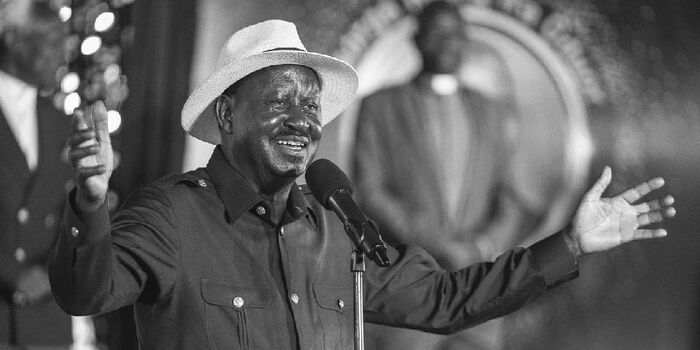Residents of West Pokot County continue to mourn the death of former Prime Minister Raila Amolo Odinga, describing him as a national hero who championed justice, democracy, and unity throughout his political life. From Kapenguria to Alale, flags fly at half-mast, and conversations are filled with fond memories of the man many regard as Kenya’s most resilient reformist.
For Tsan Wawee, a resident of Talau in Kapenguria Constituency, the news of Raila’s passing was deeply personal. Overwhelmed by emotion, Wawee walked a long distance from his home to Makutano town just to buy a newspaper carrying Raila’s picture and tributes.
“I wanted to keep it as a memory of the late hero,” he said, clutching the newspaper he considers a symbol of respect for a man who changed Kenya’s political landscape.
Wawee recalled that Raila stood up for marginalised communities like the Pokot during the late President Daniel arap Moi’s regime, especially in 1984 when the government launched a military operation to seize illegal firearms.
“Many Pokot people were beaten and mistreated, but Raila firmly opposed such oppression and consistently fought for equality,” he noted.
Other residents, including Daniel Loshangura, echoed Wawee’s sentiments, praising Raila for championing multiparty democracy and devolution—reforms that brought development and representation to regions once left behind.
“Raila fought for a Kenya where every region had an equal chance at progress,” Loshangura said. He also lauded Raila’s generosity, noting his support for African-initiated churches such as the Mafuta Pole Church of Africa in Sook Ward, Kapenguria Constituency.
As mourning continues in West Pokot, locals remember Raila Odinga not just as a politician but as a leader who understood their struggles and gave a voice to the forgotten corners of Kenya.

